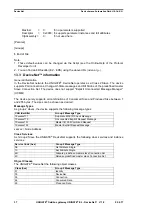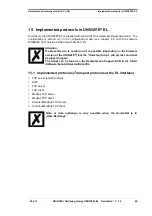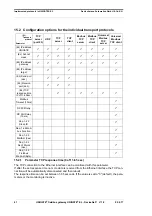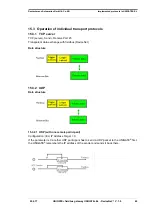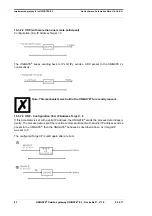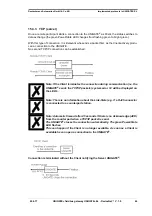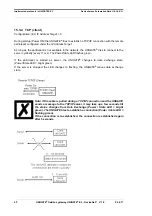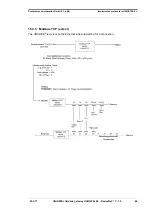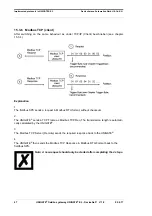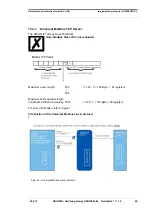
Installation guidelines
Deutschmann Automation GmbH & Co. KG
33
UNIGATE
®
fieldbus gateway UNIGATE
®
EL - DeviceNet
™
V. 1.0
22.6.17
Interference currents on cable shields are discharged to earth via the shielding bus which is con-
nected conductively to the chassis or housing. A low-impedance connection to the PE wire is
particularly important in order to prevent these interference currents themselves becoming an
interference source.
Wherever possible, use only lines with braided shield. The coverage density of the shield should
exceed 80%. Avoid lines with foil shield since the foil can be damaged very easily as the result of
tensile and compressive stress on attachment. The consequence is a reduction in the shielding
effect.
In general, you should always connect the shields of cables at both ends. The only way of
achieving good interference suppression in the higher frequency band is by connecting the
shields at both ends.
The shield may also be connected at one end only in exceptional cases. However, this then
achieves only an attenuation of the lower frequencies. Connecting the shield at one end may be
more favorable if
•
it is not possible to lay an equipotential bonding line
•
analogue signals (a few mV resp. mA) are to be transmitted
•
foil shields (static shields) are used.
In the case of data lines for serial couplings, always use metallic or metallized plugs and connec-
tors. Attach the shield of the data line to the plug or connector housing.
If there are potential differences between the earthing points, a compensating current may flow
via the shield connected at both ends. In this case, you should lay an additional equipotential
bonding line.
Please note the following points when shielding:
•
Use metal cable clips to secure the shield braiding. The clips must surround the shield over a
large area and must have good contact.
•
Downstream of the entry point of the line into the cabinet, connect the shield to a shielding bus.
Continue the shield as far as the module, but do not connect it again at this point!



















